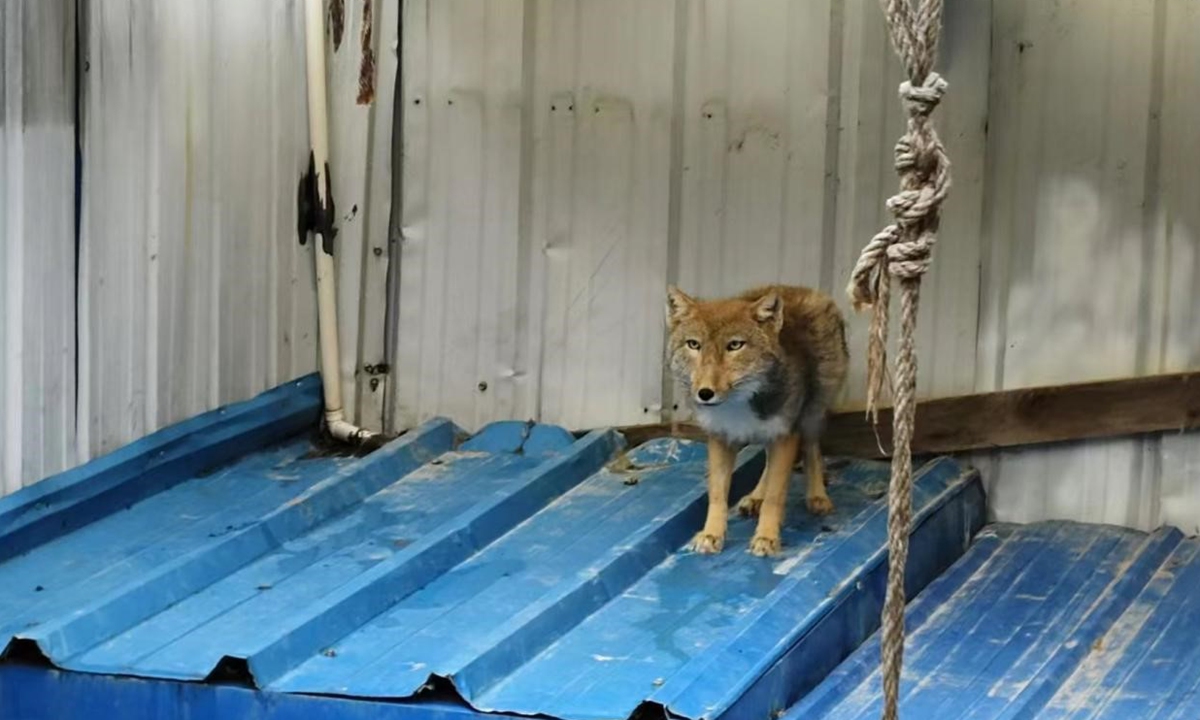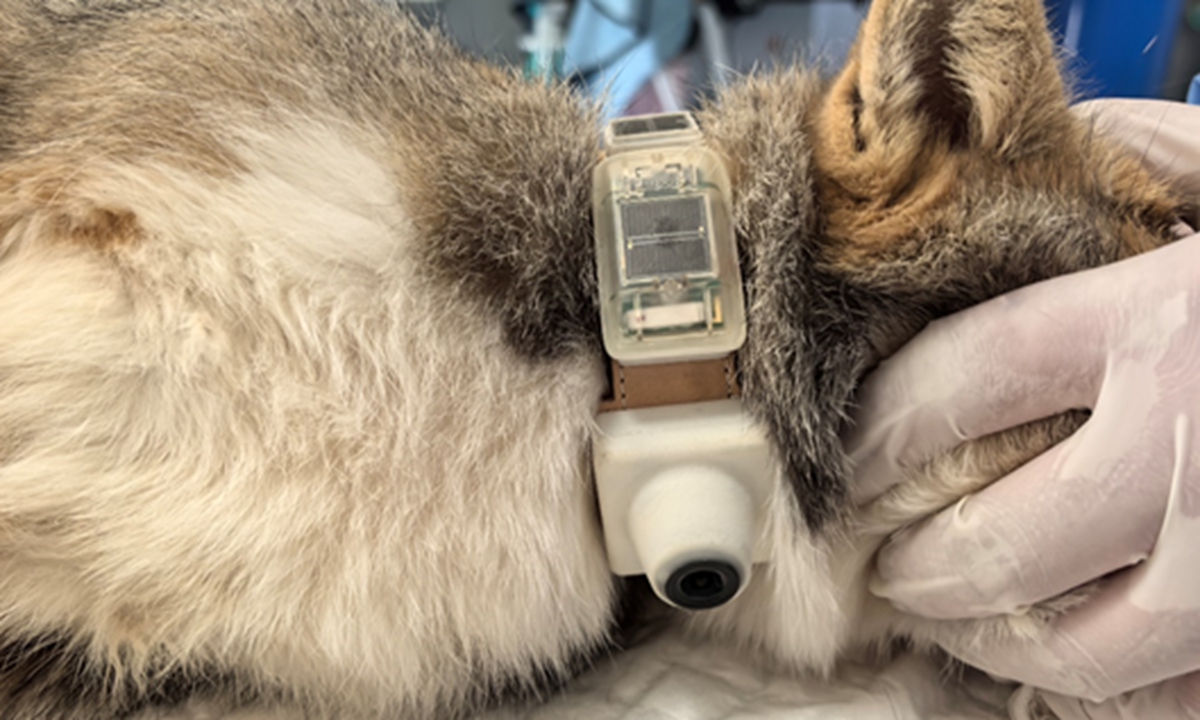
Hu San Tiao at the rescue center in Northwest China's Qinghai Province Photo: Courtesy of Qinghai wildlife rescue and breed center
A wildlife rescue and breeding center in Northwest China's Qinghai Province recently successfully released a Tibetan fox equipped with a satellite tracking collar after it had been rescued, the first of its kind in the world.
The tracking device will provide rich data for offering clues to the behaviors of Tibetan foxes in the wild.
The Tibetan fox, a species native to the Qinghai-Xizang Plateau, was reintroduced to the wild on September 26, 2024, in Riyue township, Huangyuan county, Xining city.
Data transmitted from the collar showed that the fox's activity remained normal as of Thursday, leading experts to initially conclude the release had been a success, the Qinghai wildlife rescue and breed center confirmed to the Global Times on Sunday.
The Tibetan fox, called Hu San Tiao, is a juvenile male about one year old. On June 4, 2024, Hu San Tiao was found trapped in a fence at a deer farm in Riyue township.
Initially found weak and suffering from a poor appetite, he had regained a healthy weight, received vaccinations for canine infectious diseases, and undergone deworming treatments at the rescue center before his release in late September.
He was released at a gentle slope at an altitude of 3,300 meters, a typical alpine meadow habitat with abundant plateau pikas, the primary food source for Tibetan foxes in the wild, according to the center.
As of October 10, 14 days after his release, the collar had collected 325 data points and nearly 50 photos.
The Tibetan fox primarily found in China, and in parts of Nepal and India.
In China, it is classified as a second-class protected wild animal.
On Chinese social media, Tibetan foxes have gained fame from their famously vacant and indifferent expressions.

Hu San Tiao wearing satellite tracking collar Photo: Courtesy of Qinghai wildlife rescue and breed center





